 Famously, Oscar Wilde said “We are all in the gutter, but some of us are looking at the stars.” Fair enough, while others of us are gazing hungrily at the McDonalds across the street, or peering up the skirt of a passer-by. Scientists look at science at least most of the time, we hope, because that is what they are paid to do; if they are utterly preoccupied with football, or playing Grand Theft Auto, maybe the supervisor needs a little chat. But such concentration can narrow scientists somewhat, just as a few otherwise good policemen come to see everyone as a potential suspect. Hence this little problem with God.
Famously, Oscar Wilde said “We are all in the gutter, but some of us are looking at the stars.” Fair enough, while others of us are gazing hungrily at the McDonalds across the street, or peering up the skirt of a passer-by. Scientists look at science at least most of the time, we hope, because that is what they are paid to do; if they are utterly preoccupied with football, or playing Grand Theft Auto, maybe the supervisor needs a little chat. But such concentration can narrow scientists somewhat, just as a few otherwise good policemen come to see everyone as a potential suspect. Hence this little problem with God.
A recent article, in a respectable newspaper, looks at an American “neurotheologist” who is “pioneering a new and highly controversial science that investigates whether—as many sceptics have long suspected—God didn’t create us, but we created God.”
Early on, the reporter painstakingly identifies himself as an atheist, because if he even hinted otherwise, his editors would assign him to the want-ads or the Fertiliser Today column. I am not. And while I have no particular recollection of ever having created Order from Chaos, separating Light from Darkness or even creating giraffes, much less creating God, I suppose that we ought to give these clever people a fair hearing.
 The neurotheologist (whose title implies just a teensy bias toward neurons) wired up the brain of an atheist, set him meditating, and found that the print-outs differed vastly from those of Buddhist monks and Franciscan nuns at prayer. His prefrontal cortex was pumping like a fire-hose (if that’s the proper analogy) that signified analysis controlling his emotions. The reporter, having to talk about himself because every journalist must become part of his own story, butted in to add that he had taken a 10-week “Alpha” course in evangelical Christianity (that was possibly not taught by Jesuits). He remained unimpressed while another chap collapsed and babbled “in tongues”“Were our brains wired differently?” he asked.
The neurotheologist (whose title implies just a teensy bias toward neurons) wired up the brain of an atheist, set him meditating, and found that the print-outs differed vastly from those of Buddhist monks and Franciscan nuns at prayer. His prefrontal cortex was pumping like a fire-hose (if that’s the proper analogy) that signified analysis controlling his emotions. The reporter, having to talk about himself because every journalist must become part of his own story, butted in to add that he had taken a 10-week “Alpha” course in evangelical Christianity (that was possibly not taught by Jesuits). He remained unimpressed while another chap collapsed and babbled “in tongues”“Were our brains wired differently?” he asked.
I had thought that, since at least the Upper Paleolithic, all of our brains have been more or less hard-wired the same. But I could have been mistaken. Later it appears that he did not really mean different wiring, but rather different behaviour within a common electrical blueprint. Getting a rare turn at the microphone, the scientist noticed among the devout, “increased activity in the limbic system, which regulates emotion. He also noted ‘decreased activity in the parietal lobe, the part of the brain responsible for orienting oneself in space and time.’” This happens a lot, apparently, because “it seems that the brain is built in such a way that allows us as human beings to have transcendent experiences extremely easily, furthering our belief in a greater power.”
Grabbing back the mic again, the journalist needed to inject the controversy required by his Terms of Employment: “Depending on your religious views, such discoveries are either deeply fascinating or profoundly disturbing.” No, not really, but never mind.
It continues: a Canadian invented a 1990s “God helmet” which made most wearers sense an invisible being alongside of them; concluding that everything “from the Virgin Mary being visited by the Holy Spirit to UFO sightings—were probably nothing more than people being subjected to energy fields connected to shifts in the Earth’s plates or environmental disturbances.” I do not know about you, but tectonic shifts play hell with my cable service.
Finally, the writer noted that believers live an average of seven years longer than non-believers, and recover from depression 70 per cent faster. Oh, and people with severe neurological diseases have fewer religious experiences. So there.
The solution lies in potato chips. Forty years ago, a classmate worked part-time in an essence factory, he would smuggle vials of powder into the pub, and then ask the barman for a packet of banana-flavoured crisps. The choices were salt-and-vinegar, plain, and cheese-and-onion, which some stranger seated beside him would explain, in the off-chance that he was a space-alien. My classmate would make a small wager, then secretly sprinkle some banana-flavoured chemical powder into the bag of plain crisps, offer some to his mystified companion and collect his winnings. Did the artificial flavour disprove the existence of bananas? Or even the possibility of banana-flavoured potato chips? On balance, I would say no.
 Similarly, you and I could dress up as a horse (I will be at the front end, and you can just be yourself). If we fool some drunk or myopic person, does it in any way reflect on real horses? If scientists replicate the feeling of St. Teresa of Avila, does that mean (a) the artificial experience is the same as the natural one; or, (b) the replica may be no more real than my friend’s tricky potato chips or our horse costume?
Similarly, you and I could dress up as a horse (I will be at the front end, and you can just be yourself). If we fool some drunk or myopic person, does it in any way reflect on real horses? If scientists replicate the feeling of St. Teresa of Avila, does that mean (a) the artificial experience is the same as the natural one; or, (b) the replica may be no more real than my friend’s tricky potato chips or our horse costume?
If our human subject is blind, would it mean that either fake horses or real horses do not exist? Or that the poor chap cannot see a damn thing?
If science can replicate a perception of God, does that prove or disprove the existence of God? Does my salad’s wholly chemical “bacon-bits” tell me anything more about bacon than very roughly approximating its taste?
If someone with Parkinson’s Disease has fewer religious experiences, does that mean that our brains create our Creator, or just that the poor man’s receptors have broken down? In which case, if he can no longer perceive God, perhaps God can still perceive him.
As I hinted at before, the problem is in the scientist’s job-title: neurotheologist. Prince Metternich said that “we are all sophists of our passions.” My mother, a wise former nurse, insists that surgeons always recommend surgery, while internal medicine specialists try to solve every problem with handfuls of pills. Zeno (430-490 BC) said that the gods of Greeks were white, of Ethiopians black, and if scorpions have gods, they have lots of legs. We are what we eat.
Since nobody can disprove the existence of anything, that and the scientist’s pay-check and his undoubted professionalism point him in only one direction. The journalist has a touchingly profound but irrational belief in atheism, and that plus social pressure and his Terms of Employment accomplish the same, but require a lot less scholarship. Nobody likes to admit to his professional limitations, until, like the hyper-active policeman, everyone eventually resembles a suspect; or, like a neurotheologist, little blobs of chemistry and electrical spurts comprise everything Seen and Unseen, when they only show how perceptions are recorded. It is as if we confused George Martin’s tape-recorder with the music played by the Beatles.
Meanwhile God, who knows this already, has a good laugh and then goes back to work sorting out nearly 300,000 species of beetles, and answering our prayers.
Books on the topic of this essay may be found in The Imaginative Conservative Bookstore.


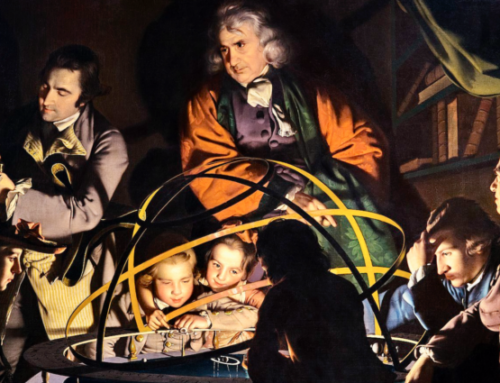
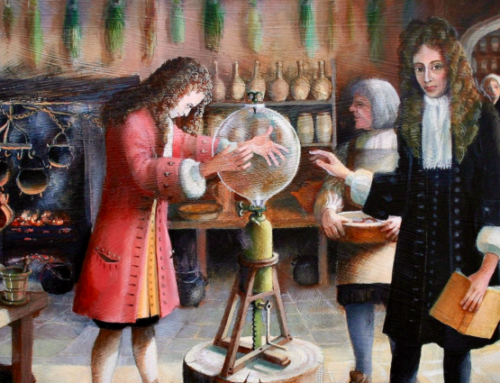
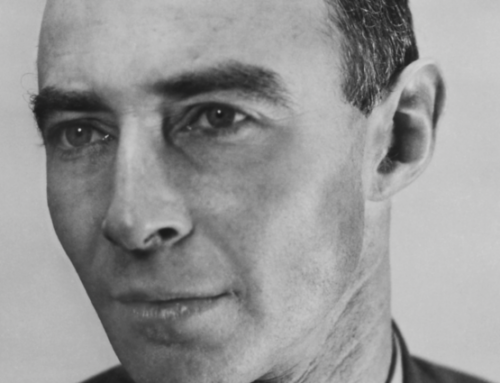
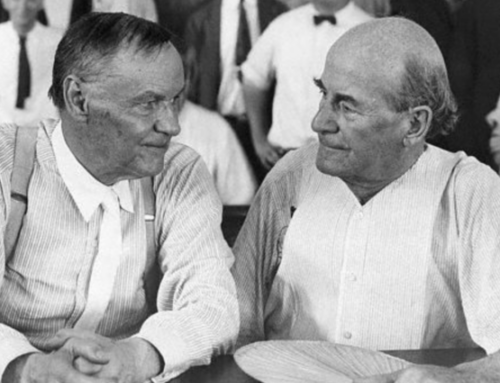
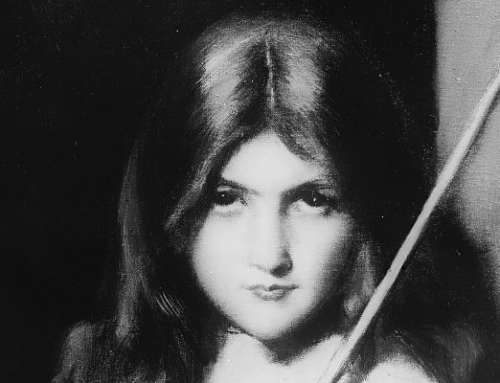
Thank you! You gave me a good laugh, too!
I knew Prince Metternich would ride up on his white horse somewhere along the way here!
Thank you for the fun read–but one poignant through and through. As you write, the blobs of chemistry and spurts of electricity–like the banana powder or the bacon bits–prove nothing, but God does get a well-earned laugh out of all of it…
Thanks! I get a bulk discount on Metternich quotes from his agents; Habsburg, Habsburg, Habsburg & Weinstein.
Excellent! This is one of the best essays on the subject of silly atheism that I’ve ever read.